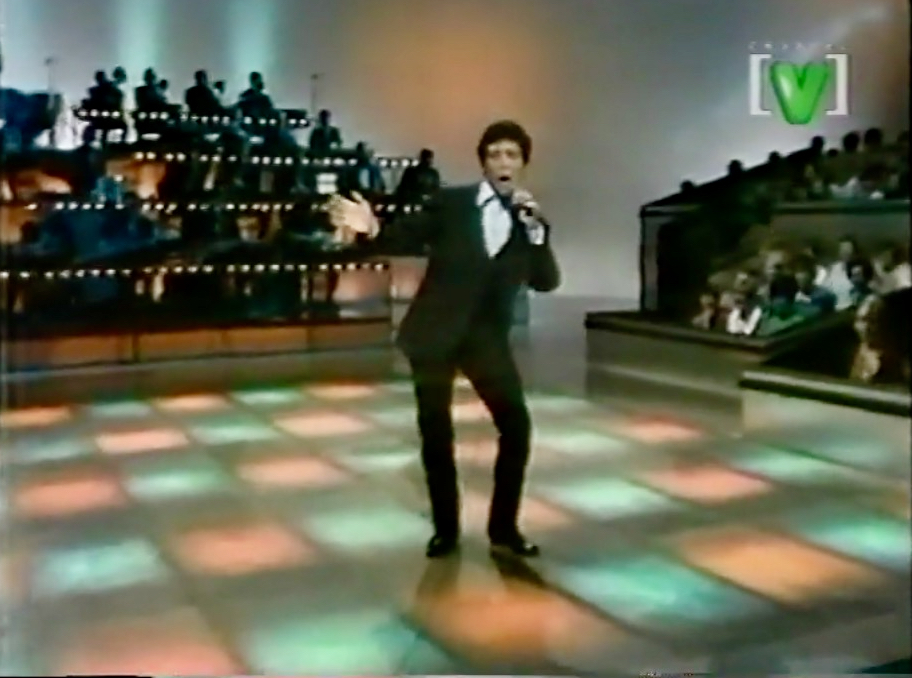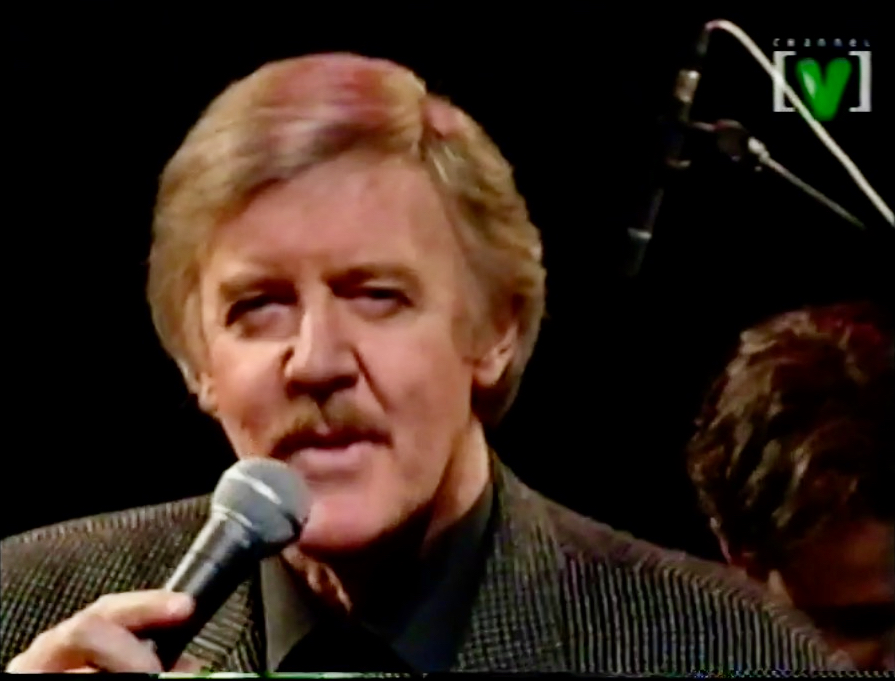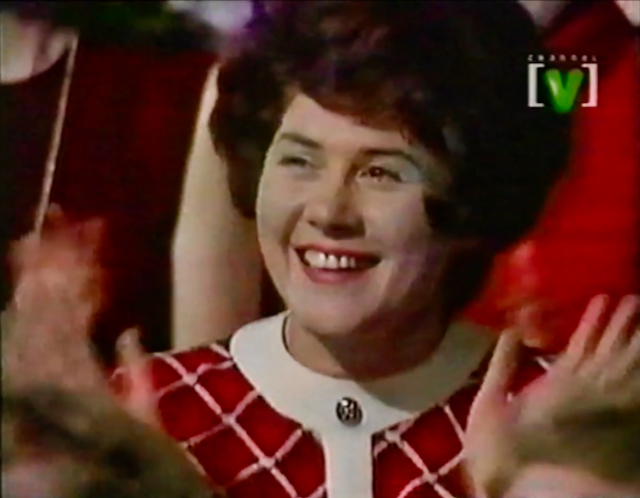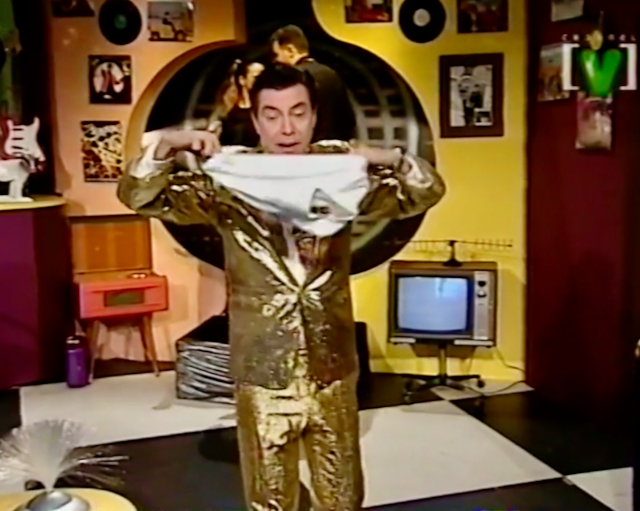See the passing of 2023 and hope it’s better than any previous Maynard calendar.
A year of goofin’ off prepared by Richard Saunders
Simply download it from the link below and print it any size you like.
Suitable for hanging behind any door…
See the passing of 2023 and hope it’s better than any previous Maynard calendar.
A year of goofin’ off prepared by Richard Saunders
Simply download it from the link below and print it any size you like.
Suitable for hanging behind any door…
A Very Maynard Xmas is the highlight of the year for people who don’t get out a lot. The extravaganza purports to have a level of Xmas pageantry rarely seen in Australia. This year the spotlight occasionally falls on “unimpressed Germans”: witness attempts by a handful of varied musicians that fail to crack a smile on that Germanic dial.
Our guests dropping by this year include Tim Ferguson, Lesley Fountain, Chris Kelly from Ship O Fools, Brigitte Handley, Christopher Laird, Tony Push, Frank Bennett, George Hrab, Mari Wilson, “Weird” Al Yankovic, 3 pugs and loads of Yuletide surprises.
A Very Maynard Xmas 2022 promises you almost two hours of Xmas entertainment you probably won’t be able to describe to friends afterwards. “There was this guy in a suit and Toyah, a bugle, fire, Vegemite, Mari Wilson cursed a fig tree & a Dark Wave guy held up signs in his pyjamas while someone read a poem in Dymocks”.
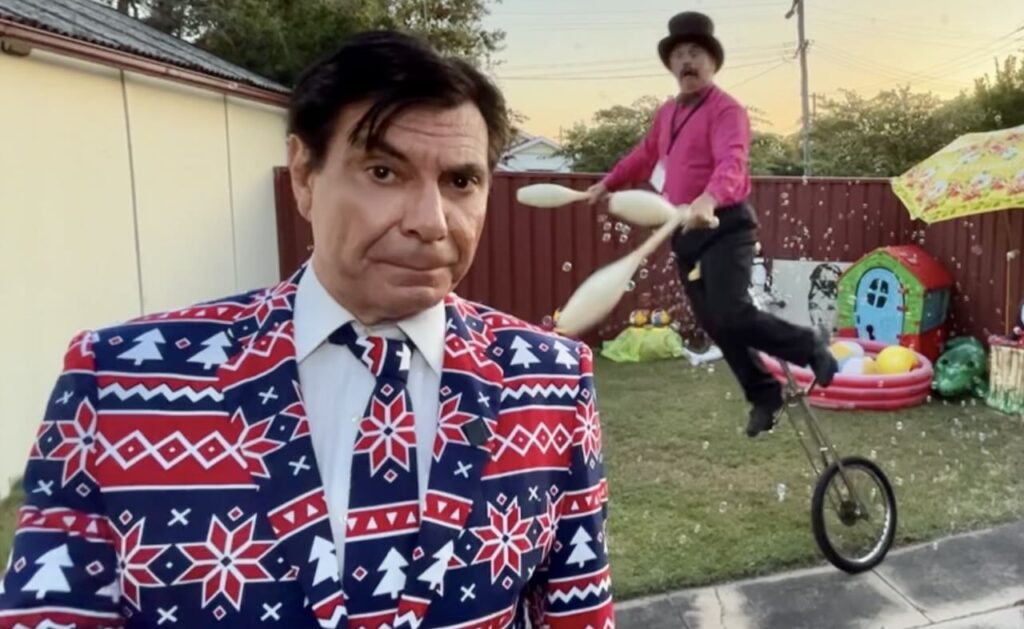
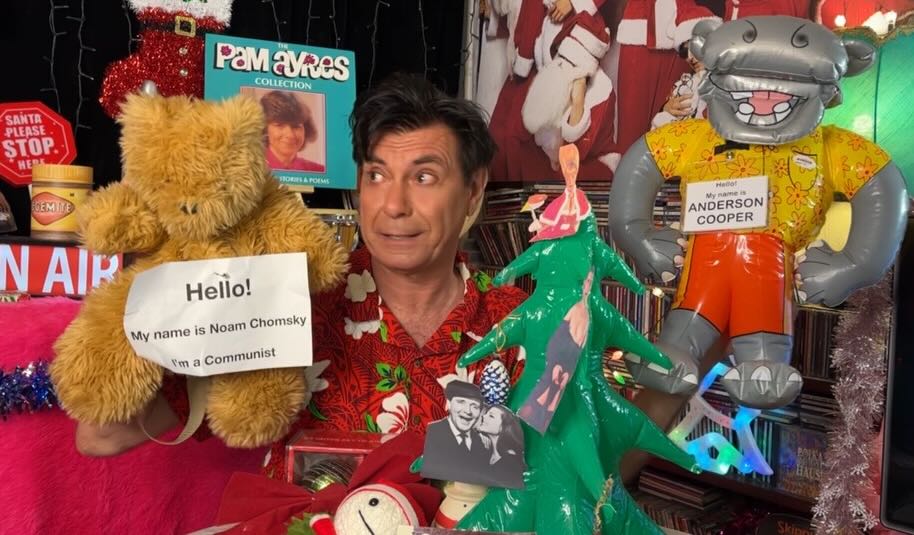
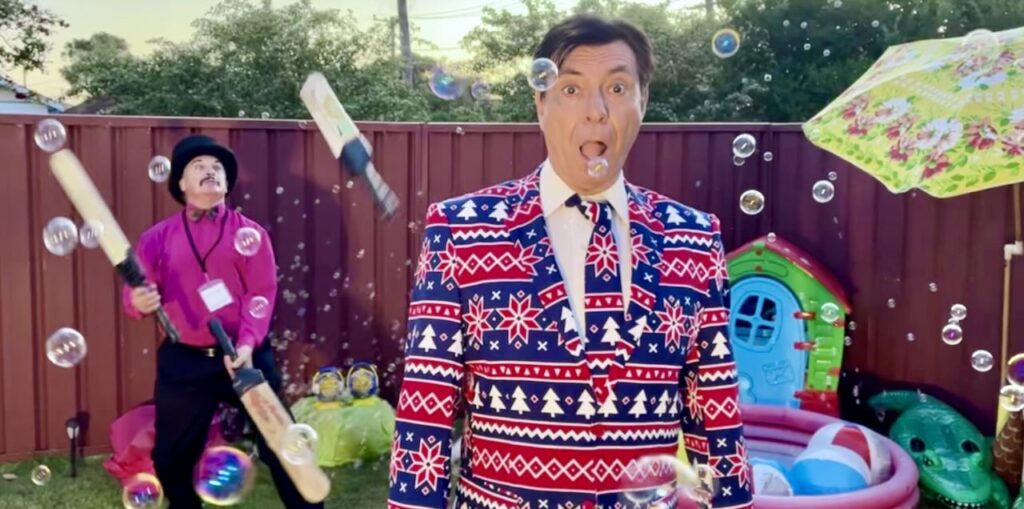
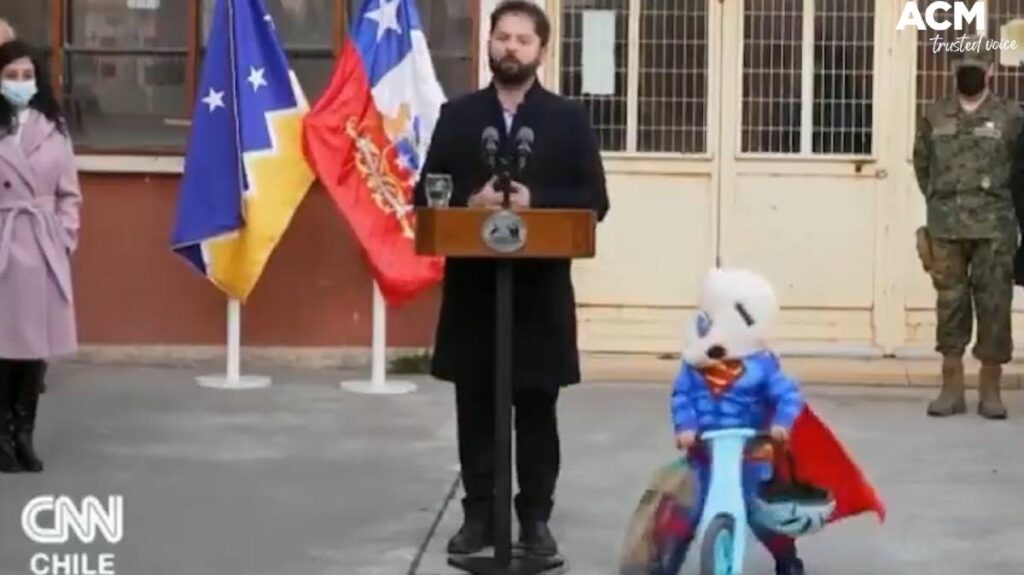
To celebrate the “Weird Al” Yankovic epic biopic release worldwide, let’s watch some Weird Al clips. From the vault in the famous Maynard International Studios in Australia, Maynard will showcase some of his favourite Weird Al material.
Tim Ferguson will also throw some easy Weird Al questions at you, and we screen Maynard’s previously unseen interview with Al during his first tour of Australia in 2003. (He didn’t do any shows during his 1990 UHF promotional visit.)
Weird Al and Maynard first met in 1990 at Flinders Street Railway Station on Al’s 30th birthday for Maynard’s Triple J breakfast show. Below is the scene shortly after Maynard rubbed Al’s birthday cake over himself.
PS He gave Al a second one as pictured!
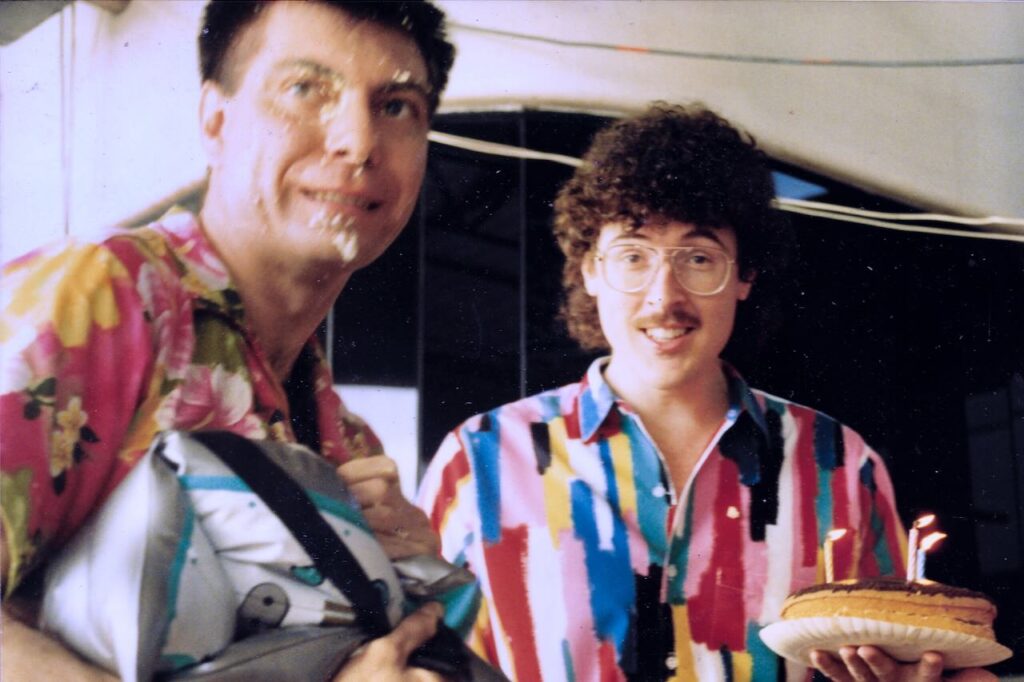
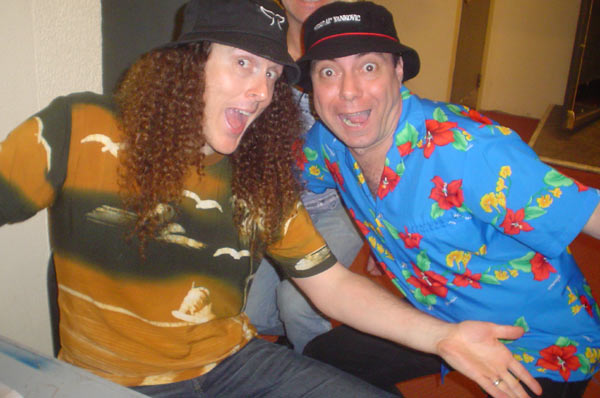
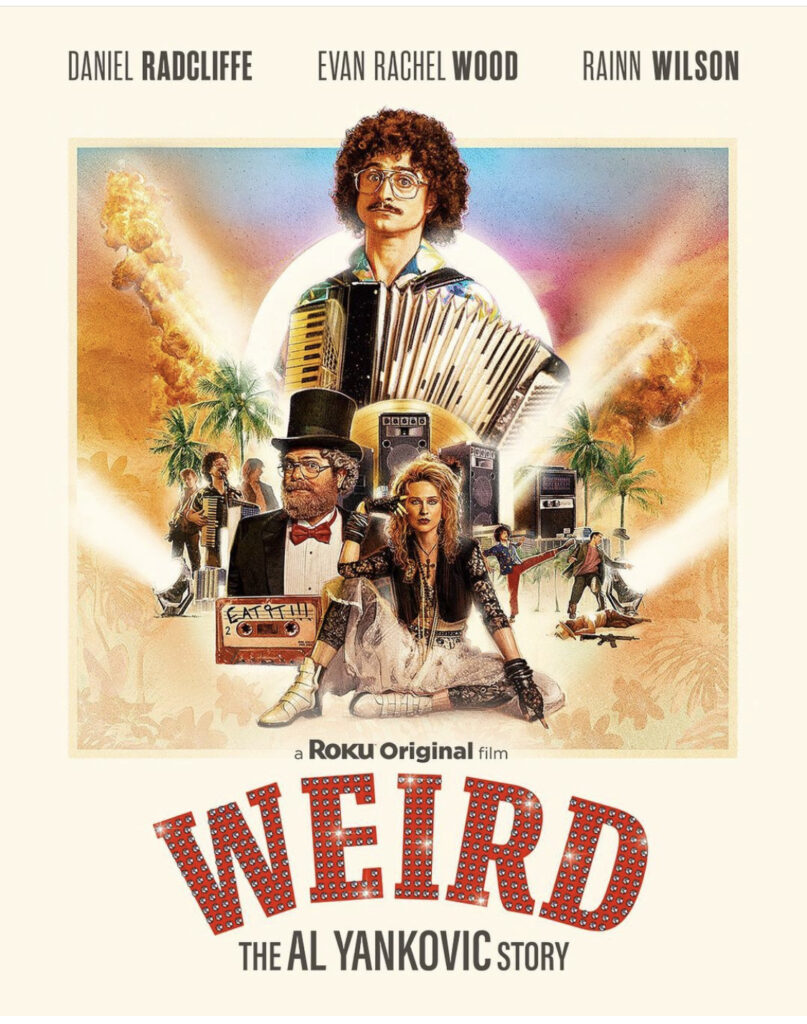
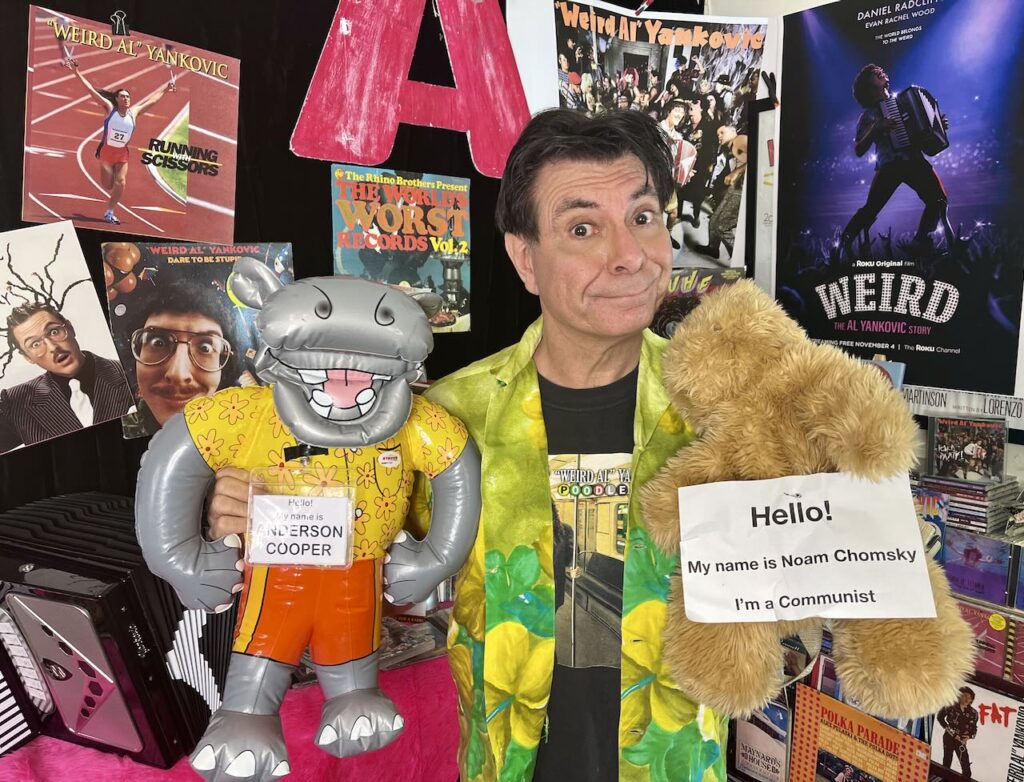
To celebrate the release of the long awaited Mari Wilson collection on CD, Maynard presents a video livestream of more Mari Wilson video clips than you ever thought possible. There will be Mari music clips from all over the place, special guests, not so special guests, a tea towel, press clippings, dancing and a legal disclaimer.
Join Maynard, Bob Downe, Glenn Keenan (Lesley Fountain), George Hrab and Noam Chomsky the teddy for show full of fun and fabulous outfits.
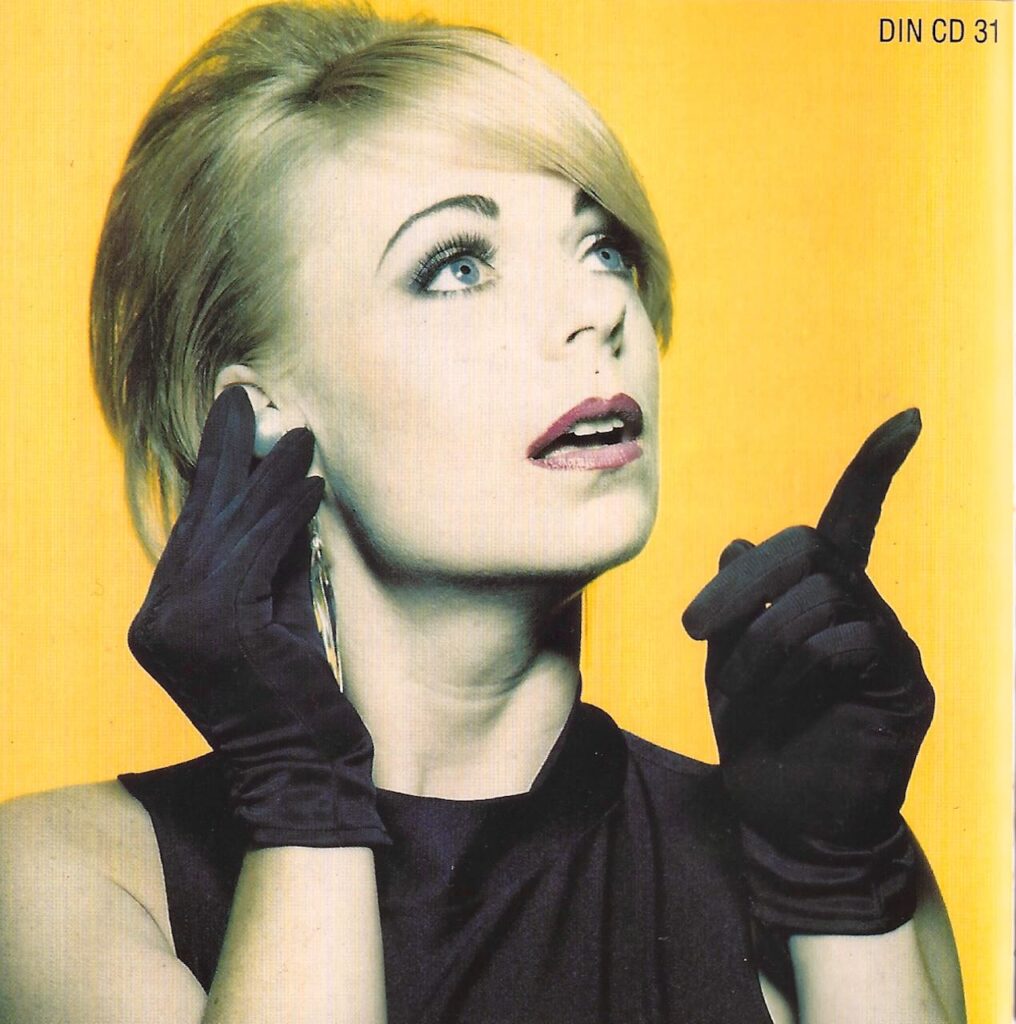
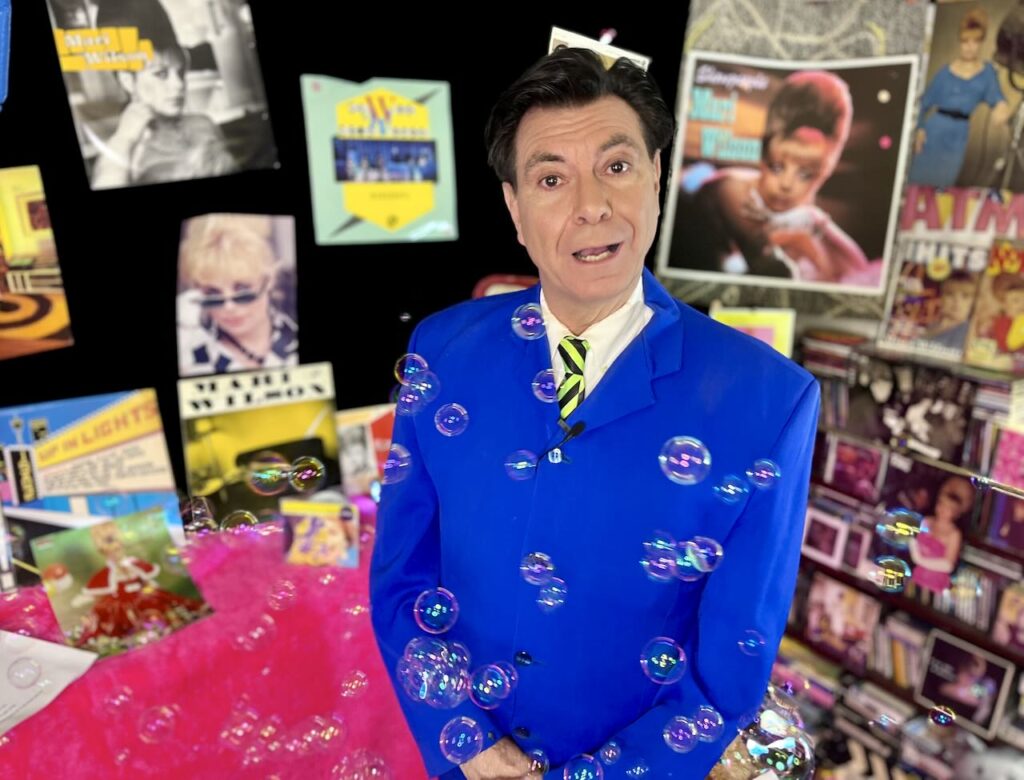
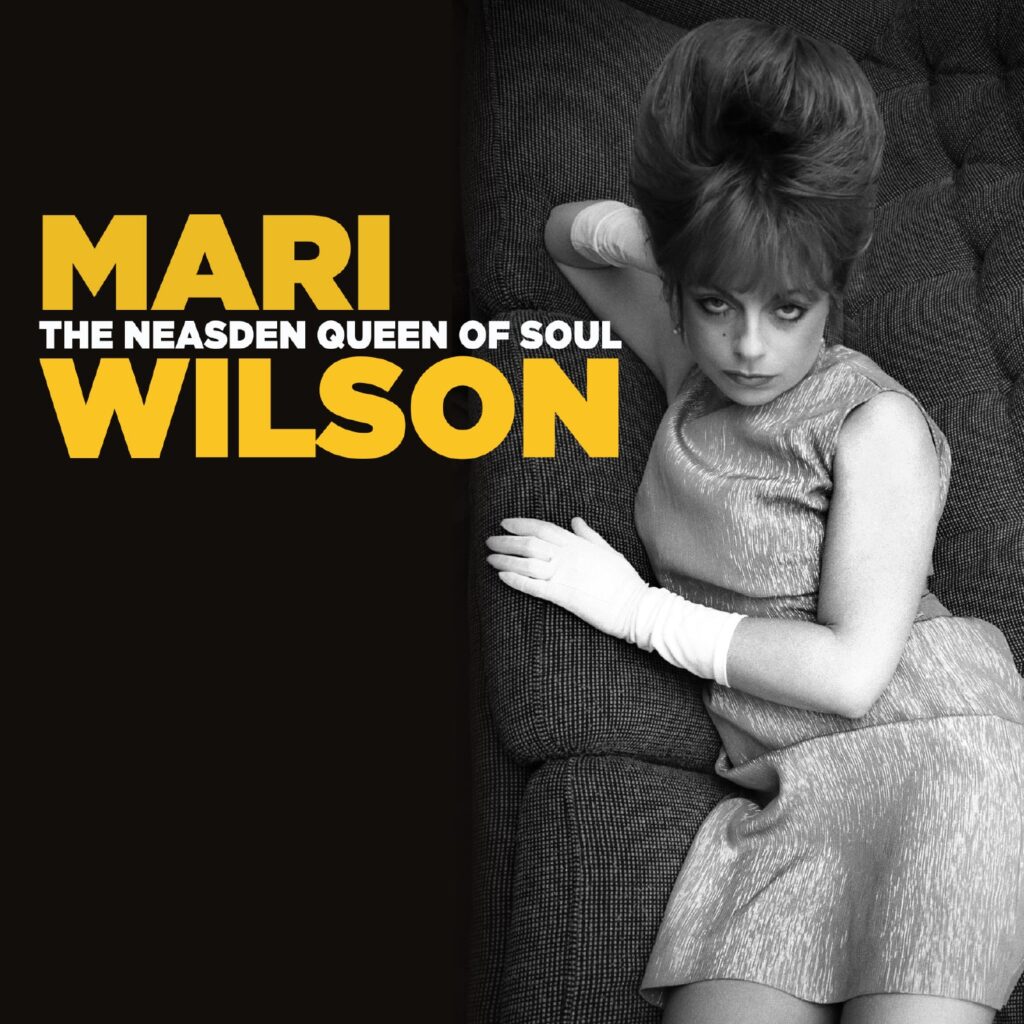
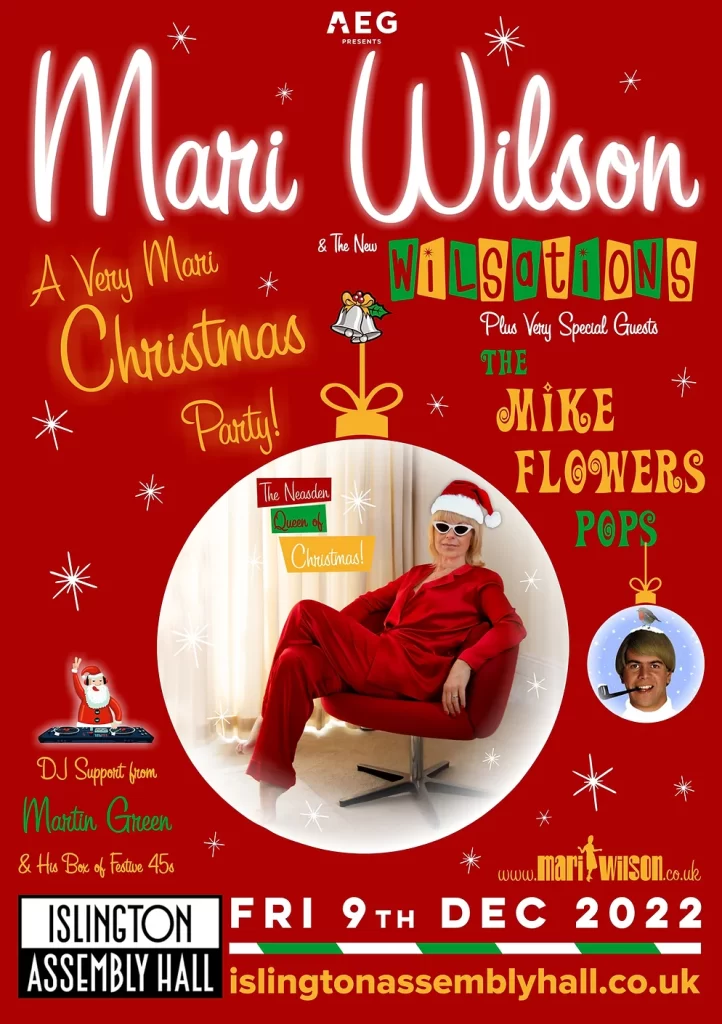
Leo Sayer sits down to talk about his book and share some stories, laughs, music and a bit of dancing on the table.
Leo Sayer has been a live favourite in Australia since he first toured here in the 70s.
From Long Tall Glasses to More Than I Can Say and the disco favourite Thunder In My Heart you are in for a treat here folks.
Leo Sayer always liked touring here, so much so that he became an Australian citizen in 2009.
But before that in the 90s he sat down (and danced around) with Maynard on the release of his autobiography.
Enjoy all his best known songs, some gossip and the answer to that nagging question:
How high is wine up to “yar”?
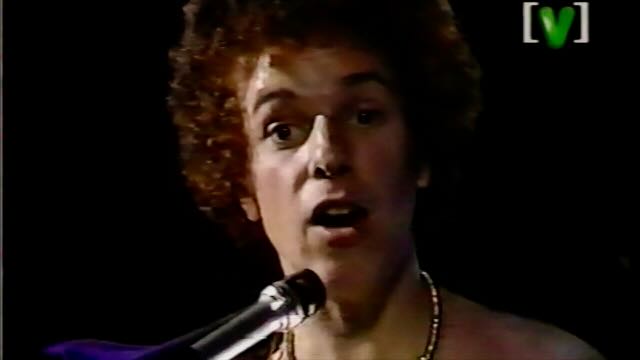
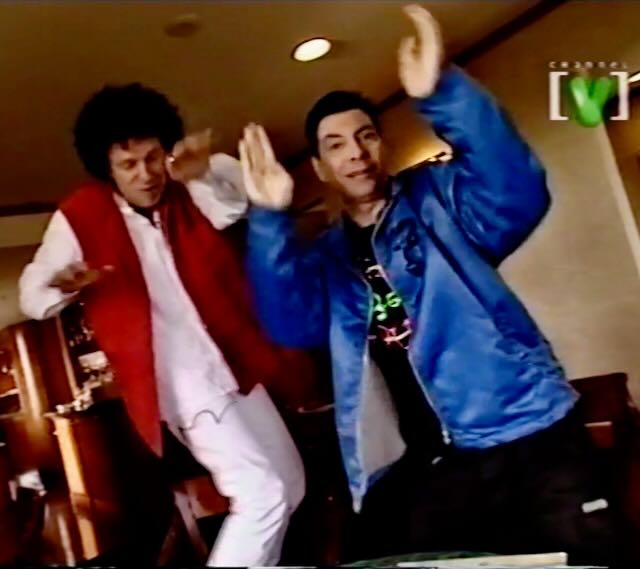
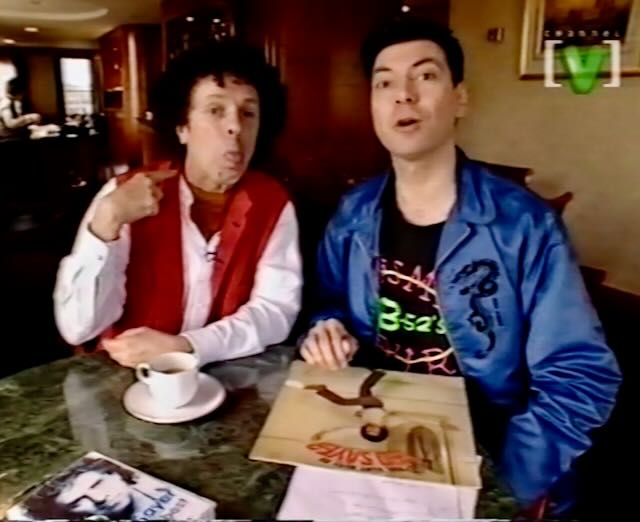
Use this link on Saturday 22nd October from 8.15pm Sydney, 10.15am Neasden
To celebrate the release of the long awaited Mari Wilson collection on CD, Maynard from far flung Maynard International Studios in Australia presents a video livestream of more Mari Wilson video clips than you ever thought possible.
There will be Mari music clips from all over the place, special guests, not so special guests, a tea towel, press clippings, dancing and even some surprising Mari adjacent music clips.
It will all happen at https://www.mixcloud.com/live/dj-maynard/ with a pre show starting at 8.15pm (10.15 Neasden). It’s free to watch and you can join all the fun in the live chatroom so be in on it.
Facebook event for Mari! Mari! Mari!
Listen to Mari Wilson interview to catch up on what she has been up to.
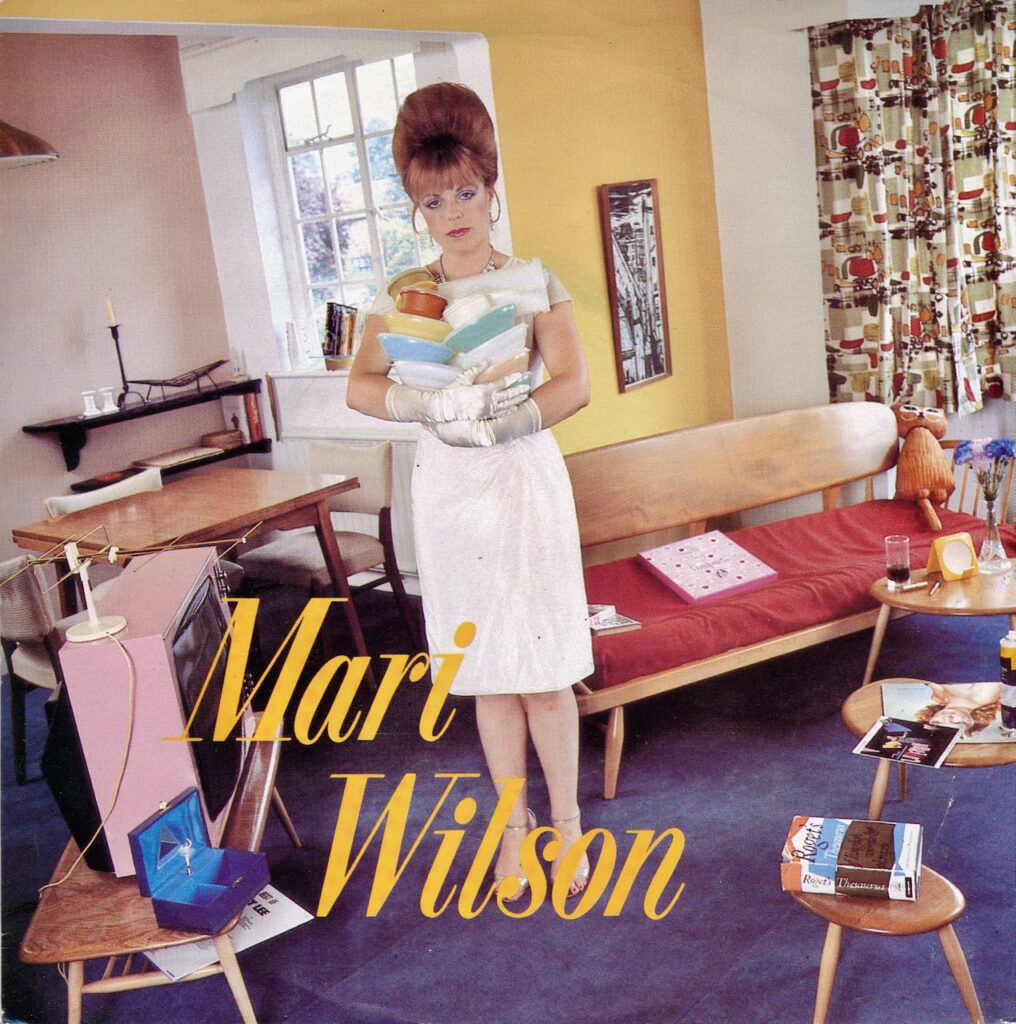
Podcast: Play in new window | Download
Subscribe: Email | TuneIn | RSS
Mari Wilson, 80s UK pop glamourpuss, is our guest in this possibly career defining show for Maynard. From Neasden to New York, from “Just What I Always Wanted” to “The Eyes Have It” via “Ecstasy” and much carry on over the decades, Maynard and Mari have a grand old chinwag.
Joining fellow Neasden immortals such as Twiggy, Gerry Anderson and Bob Marley… Mari Wilson still often wonders what was the deal with the Neasden Sea Scouts, as Neasden is 40 miles away from the sea.
“I’ve got a thing about Tupperware. You’ve got to know the right way to let air out of it.”
Mari Wilson – Tupperist

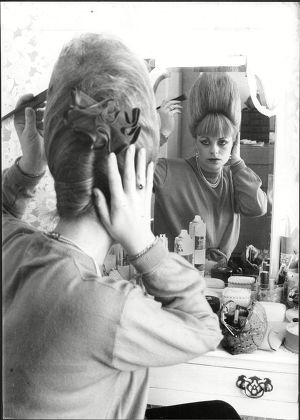
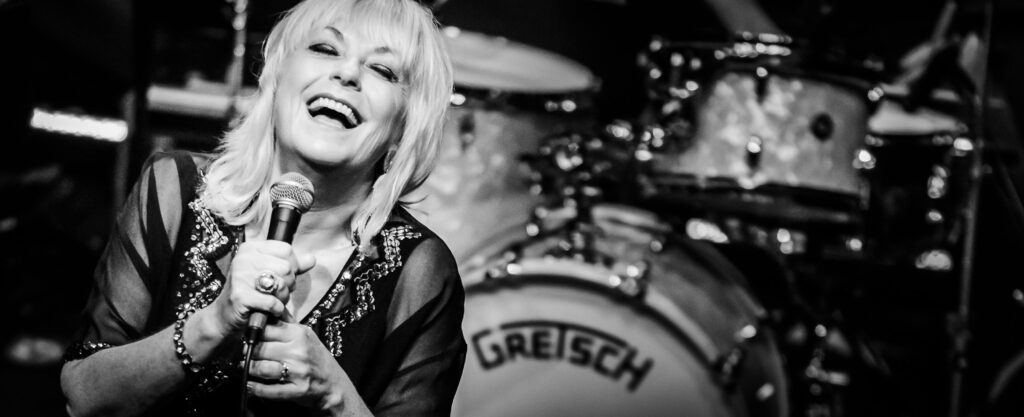
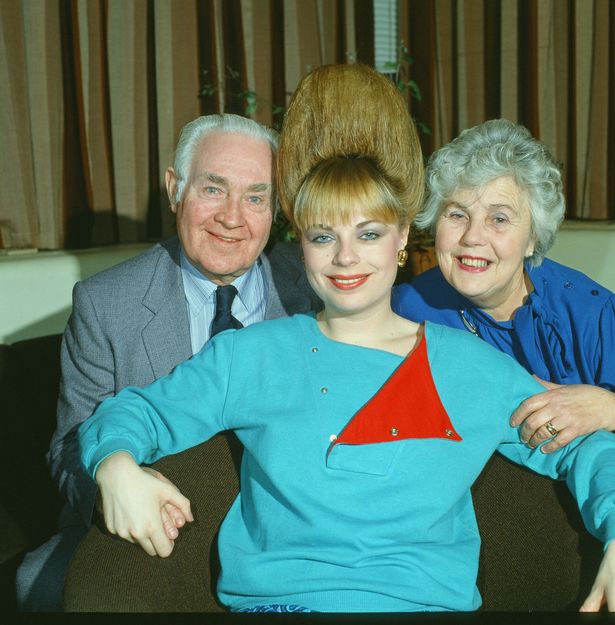
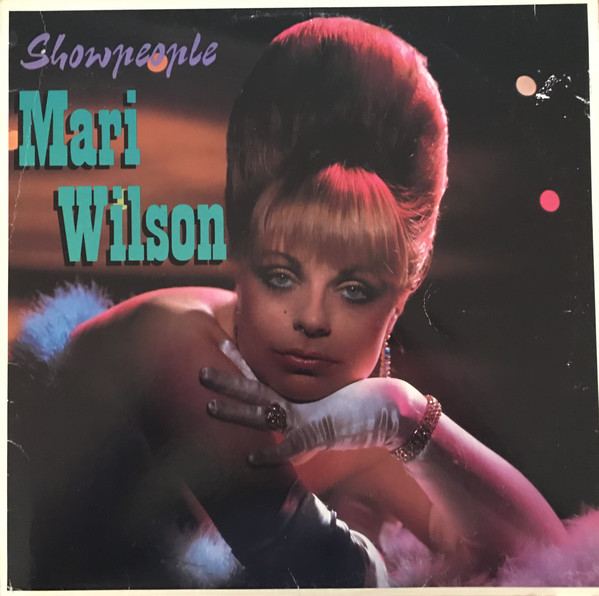
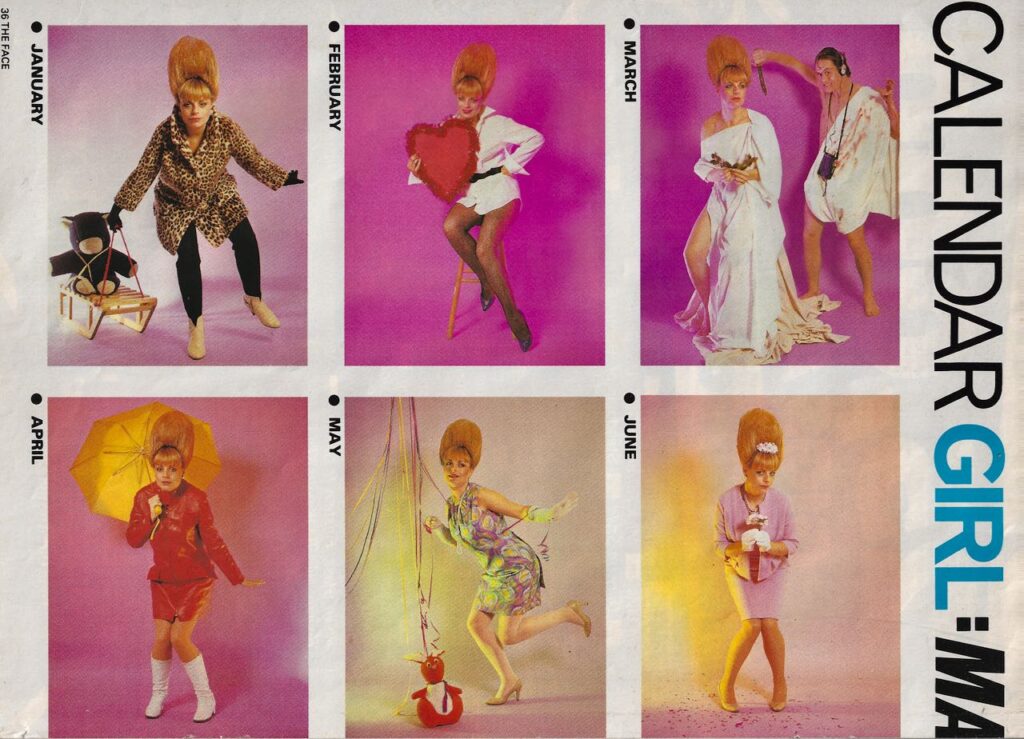
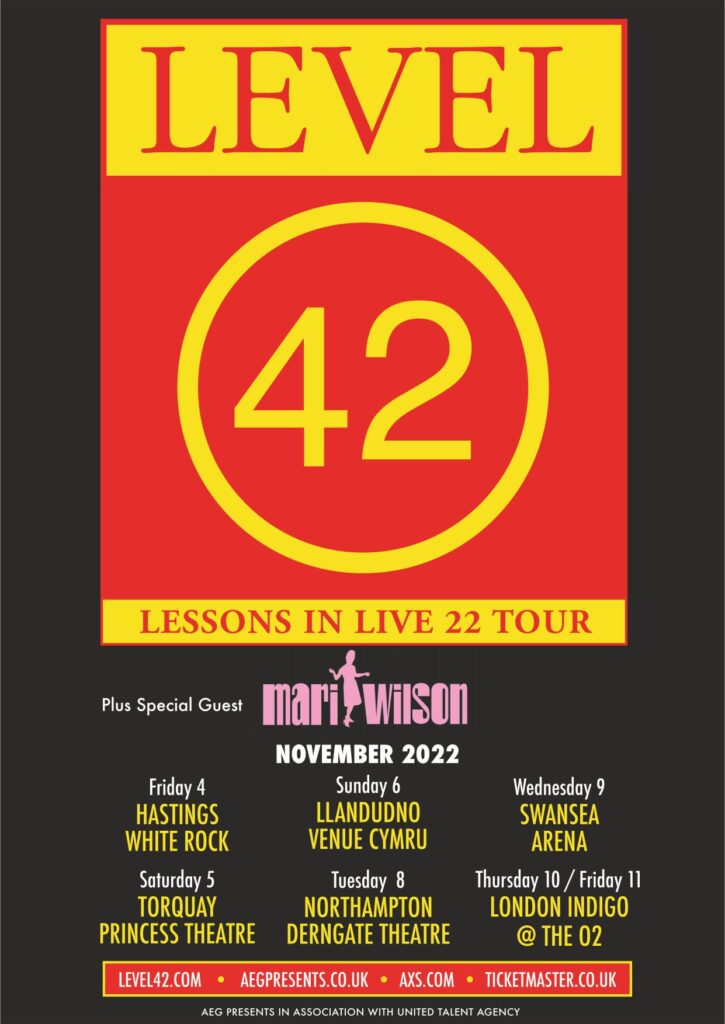
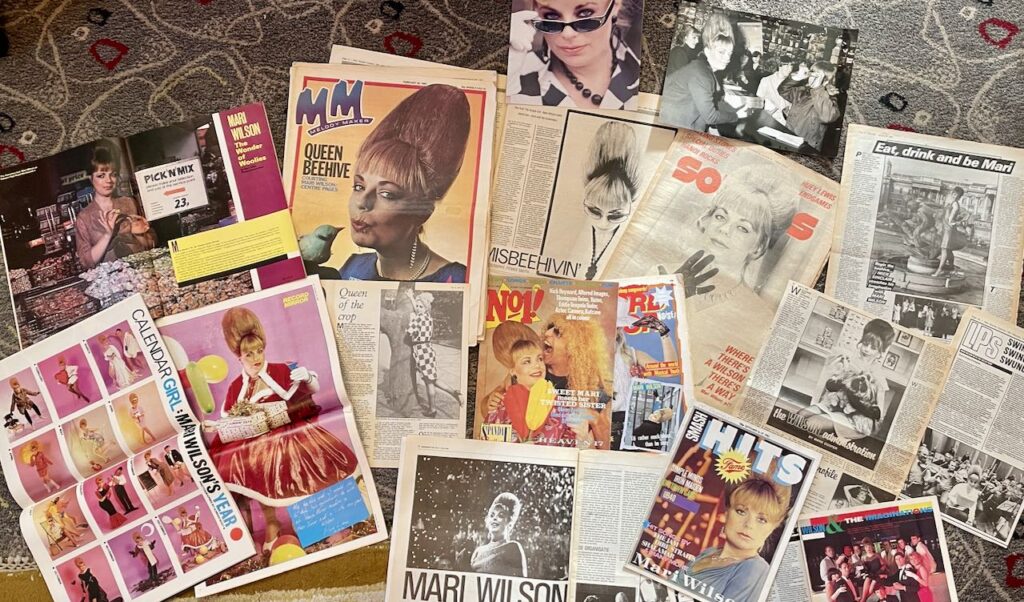
“I may have overresearched this interview…”
– Maynard (overresearching )
Watch all the Mari Wilson video clips Maynard could find. A Mari Wilson video special.
Watch Mari on Top of The Pops with her fans and band having a great time 1982.
What was The Castanet Club anyway?
Official looking transcript of Maynard’s interview with Mari Wilson
Maynard: Valued listener, only three musical artists deserve their very own section in my extensive music collection. They are ABBA, Tom Jones and our guest today, Mari Wilson. From an early beginning in the backyard bathtub in Neasden, to the bright lights of New York City and Crouch End, Mari has wowed the world with her albums such as Showpeople, The Rhythm Romance, Pop Deluxe and Emotional Glamour. And the singles: from the perfect 80s pop of Just What I Always Wanted, to the cinematically dangerous Would I Dance with a Stranger, to any of the belting heartfelt ballads on Pop Deluxe, Mari’s worked with Boy George, Mark Almond, Heaven 17, not to mention Harry, Barry, Larry, Gary, Cary and, of course, Jim. Despite never realising her lifelong dream of owning a donkey by the seaside, Mari has succeeded in breathing life and laughter into her catchphrase: it's a glamourous song and it's glamorously sung. My favourite UK Type 1 diabetic, please welcome Miss Beehive, The Neasden Queen of Soul, eat drink and be Mari! In fact, be Mari McMillan Ramsey Wilson! Hi Mari! Mari: Hello there! That was quite something, wasn't it, that intro, that's very kind of you. You missed one album out there and that's Cover Stories. It was the one before Pop Deluxe. It's very sparse, just piano. Maynard: And I saw you giving a lovely sparse performance of Female of the Species on YouTube at a show. Mari: Oh my God, I think I’ve only sung that once, that song, Maynard: What got me was it was in a lovely restaurant and people were eating. Mari is singing! Don't eat the soup while the woman's singing! Great version. Mari: Well, thank you. That was years ago. My goodness. How long ago? That must have been 20 years ago, at least. Maynard: Minimal arrangement. I quite liked it. In fact, we've got telegrams from people that want me to say hello to you. Some of your Australian fans want me to say hello and ask some questions. Are you up for it Mari? Mari: Absolutely. Of course. Maynard: First one comes from Dave Milton, who was the owner of the Blue Note Club in Derby. Mari: [Laughs] That brings back some hilarious memories that does! Maynard: He said that “Mari and her band were always the most professional and the easiest group to work with that I ever worked with while I owned the Blue Note.” There you go. Mari: Well, that's nice to know. I don't think every club owner would say that mind you. Maynard: Is that because sometimes there were 12 of you and you left mud marks in the dressing room and that sort of thing? Mari: I'm pretty OCD. No, I always leave the dressing room probably tidier than when I get there. When I look back to those times, The Blue Note was fantastic. We had some fantastic gigs there. I think we played there a few times, actually. It was just very vibey and it was at the time when … I always find this quite hard to describe … but before you become whatever word you want to use “famous” or “successful” or “known”, you know, before you have that hit. It's the time sort of just before that that you never get back again. you know, I wasn’t as massive as somebody like Madonna, but still for a few years, I was having hit records and touring and recognised and all that kind of thing. But it's the bit before that, that is the nicest because you can feel something's happening, but it hasn't happened yet, but you feel like it's going to. Maynard: There's that moment when you've still got your friends and the people you know coming along, and the new people are coming in, and it's blending like that. Is that kind of what you mean as well? Mari: Yeah, it's the anticipation. It's a bit like when you are falling in love with someone, those first six months when you shag like rabbits. Oh, I don’t know if I can say that. Can I? Maynard: Oh, we're going to get dirty here, don't you worry about that! Mari: Oh good. It kind of feels like that. And then when you get the hit and everything, that is great, but there's something better for me about the “just before” - it's lovely. Maynard: Well, we've got a quote here from you from March 5th, 1983, from the Record Mirror on the front cover: “Mari Wilson: I'd rather muck about than be sexy”. A completely out-of-context quote that they love putting on the front of these magazines. There's another one from you I like: “The problem about being famous is what if I'm walking down the shops and I fall over and there's a hole in my tights”. Mari: Did I say that? That's ridiculous! Maynard: That's a legitimate issue. If there's a hole in your tights at any time and someone notices, it can be embarrassing. Mari: Well, yeah, well but it's quite fashionable to have holes in your tights now. I think the worst thing would be if you didn't have any knickers on - that would be a bit worse, but I didn't think of that at the time Maynard: That would get you in The Sun. You'd be in The Sun for sure. Mari: Oh yeah, it would, yeah. Maynard: There's Ryan Wallace, who worked for the BBC for a while, and when he heard you were from Neasden, he asks: is the best way to drive to Neasden via Shoot Up Hill Road? Does that mean anything to you? Mari: Well, it depends where you're coming from, you'd have to go through Willesden. This is sending people to sleep isn't it? Maynard: People are putting this into their GPS right now as we talk. Bob Downe, also known as Mark Trevorrow, who I believe has worked with you a few times in the UK. Remember him? Mari: Bob Downe! Gosh, yes, I do! Maynard: He just says “Huge hello” and he still thinks you are completely fabulous. Mari: Oh, that's lovely. Oh gosh, isn't everyone being really nice, how lovely. Maynard: Glenn Keenan, he was over at my place the other day. And there's a photo of you on the wall doing your makeup, 10 by 8, I really like that. Is that your bedroom? Mari: Oh, that, yeah, it's a great photo that. Maynard: [Glenn] said she confused the hipsters of the early 80s English music press. And I think you did. They didn't know quite what to make of you sometimes. Mari: No, they didn't because it was just after punk had faded away. But the great thing about the 80s was everyone was very glamorous. Boy George, the Human League, the Eurythmics, you know, we all dressed up, but we dressed up in our own way. A lot of us didn't have stylists, it was our own taste. Most of my stuff came from charity shops. Maynard: Every fashionable woman I know, wants to know: did you get your dresses made for you or did you mainly buy from vintage shops? There’s a great quote from you saying you love going out on tour because it gave you an excuse to buy new outfits. Mari: Later on, I did have someone making me stuff, but it was, there's a place called Portobello Road in London and they've got loads of what we would now call vintage shops. They sold second hand stuff. And I used to go down there and get things. And also there was in Neasden, every so often there was the Neasden Sea Scouts jumble sale. Now why there were Sea Scouts in Neasden I've got no idea, we’re nowhere near the sea. Maynard: Maybe it's a global warming thing. They were getting ready. Mari: Maybe they were ahead of their time, ‘cause I'm talking like 1980. The women who used to run the jumble sales would phone me and say, just letting you know, there's a jumble sale coming up and there's a few lurex dresses. Should we put them aside? So they did. I used to get my earrings there. You can't find stuff like that now. And I've still got some of it. The first dress I wore on TV cost 20 pence from the Neasden Sea Scout jumble sale. It was a blue lurex number. I think they didn't know what to make of me because I wasn't really like anyone else. And that's the point, isn't it, in my opinion, for a musician or a pop star not to be like anyone else. Maynard: I managed to get a copy of the Melody Maker with you on the front cover with a little bird. You've had enough of this guy who’s interviewing you and you say, “Look, I'm not actually Depeche Mode” you say during the interview, because it's obvious that you're not, and he's interviewing you like you are, or you should be. Mari: Were they trying to be a bit political, were they? Maynard: The whole thing started out, because it was his birthday and he had to interview you for lunch. And that's what he started about. Typical English journalist starts writing about something that has nothing to do with anything that is part of the story. He goes on about, you know, you don't write your own songs. Are you a singer? And you went “I'm an entertainer”. And it's when you said you were an entertainer, it was like, you were like throwing gasoline on the fire and then you eventually said, “Look I'm not Depeche Mode.” Mari: They could be, and they still can be, quite nasty. And like, what are you getting out of it? Maybe it's just envy because they're not doing much themselves. I don't really know. And also, it's much harder to write nice things about someone than it is to write nasty things. It's quite easy to write nasty things. You can find all these wonderful adjectives and be clever with your words. But to be nice about someone takes a bit more effort, I think. Dusty Springfield never wrote one song. Maynard: You got the cover. There's a double page interview. And this guy, ugh. Mari: That's a very valid point Maynard. The fact that, yeah, I'm on the cover, I've got a double page spread, so wait a minute, who's the fool here? Maynard: February 26th, 83. Look, you're in there with Laurie Anderson, Thin Lizzy, Madness, Eurhythmics, Depeche Mode and you on the front cover. So there! Mari: Exactly. Maynard: By the way, listener, Mari Wilson. She's not Depeche Mode. In case anyone's tuning in for Depeche Mode, you'll be sadly disappointed. One last greeting: Kim Sand writes “Did you stop doing your beehive hairdo because you were getting migraines from the 150 hair pins you had to put in all the time?” Mari: You sometimes get headaches, actually. When it started, I just used to do it myself and it wasn't that big. And then I got my hairdresser Susie, and I said, oh, we, we need a bigger one. So she did quite a big one. And then I met Peter Cannon who I'm still very, very close to. Maynard: And he's the one who did the M class hairdo, which you later evolved into I believe? Mari: Yeah. He's amazing at hairdos. That's his forte. He's brilliant at that. He’d say “oh, should we make it a bit bigger? Oh, what should we put in the back? Let's put this in the back” and all that. It was so exhausting; I would have to go to … I've got a fantastic photograph someone took of me asleep in bed in a hotel, with my head hanging off the side of the bed, because I couldn't put my head on a pillow because it would squash my beehive. It was usually because I would have an interview or something first thing in the morning, so I thought, oh, I don't want to have my hair done again, oh, I'm not going to take it down, I'll leave it. And it looks like the Elephant Man, it's quite hilarious actually, this photograph. Maynard: I enjoy watching your videos because you did hide little things in the back of your beehive, there’d be a Christmas decoration or a photo or a coloured ribbon. People should have hired it for advertising space. Mari: Yeah, they should have! Maynard: Your Name Here! Mari: I just wanted to move on. Everyone has their first look, don't they, look at Phil Oakey from the Human League with his lopsided bob and things like that. So I did have loads of other hairdos, but I don't have it now or anything because when you do that kind of 1950s and 60s, which I still love, and I still have a nod to it in the way I dress. I mean I'm 67 now, so if I was to have a beehive now, when I was young, it was kind of cute and ironic, because I had a nice plump face and everything, but now you no longer look cute, you just look older. And when you're 67, you don't want to look even older. Maynard: You've still got the great fashion sense in The Eyes Have It with Matt Backer that's up on YouTube. You’ve got a great selection of outfits. Mari: I still do it with my clothes, and I still sort shish my hair up a bit, but nothing like then. I still love it. Maynard: Have you got kids or a teenage daughter that at one stage said, “oh Mum, your antics are a bit embarrassing for me”? Mari: I have a 25-year-old daughter. Maynard: Well, I hope she stops saying that then. Mari: Yeah. Well, you know, sometimes I'll say, “Do you want to come to the gig?” And she'll say, “Oh, well, I suppose you're just going to be doing Cry Me a River … no, not really”. And I thought “Thanks a lot!” But she will. In fact, I'm singing tomorrow night at my friend's 60th birthday. There's loads of us singing tomorrow. So she's coming with me tomorrow night, but probably because she wants to see everybody else. [Laughs] Maynard: Mari Wilson, another thing I have to ask you. Watching your many live performances over the decades on YouTube that I've seen, to my ear you seem impervious to a bad PA or fold back. I've heard no bum notes or out of tune stuff going on at all. Have you always got a good PA or you've got a good ear for getting the right note under difficult circumstances? Singing in the sun in the middle of Holland, working a difficult gig with a bad PA, you’re on the note every time. Mari: The 80s was good training, really, because the sound was always terrible, because there were 12 of us, it wasn't like a duo or even just a 4-piece band. There was 12 of us. That's a lot of people making a lot of noise and the first line up, they weren't the most amazing musicians. And I don't mean that in a horrible way. We were just all young and hadn't had the experience and a lot of them ended up not being musicians. It wasn't like it was their dream to be a musician. I think it was just their dream to do something that was good fun. And it was, so there was that side of it. And we just didn't have the technology. Then you'd play places and they had old PAs and you couldn't hear yourself because the band was too loud. And maybe that was the training, where I learned to tune into my own head. And I learned how to pitch despite all that. And maybe that's paid off. Maynard: You've also got a talent, not many people would know that hadn't seen you live at the time: you're also an amazing quick-change artist. In Baby it’s True on more than one live performance, within 50 seconds, you leave the stage change your outfit and come back on within 50 seconds, or around about 48 bars, I've actually counted it. How'd you do that? What's the secret, Mari, come on! A lot of women can change quickly in the back in the back of a cab, but that's quick. Mari: Well, the most important thing is you've got to have something you can step into. You can't have something going over your head, that's not going to work, especially with a beehive. So you're going to have a dress with a zip down the back, step into it, zip it up and get back on. Maynard: Did you have any help or was this all a one woman show? Mari: Peter, my hairdresser. He was always there in the wings, waiting. I remember once I went on stage, because Baby it's True was my intro, and still is when I do it with my huge Wilsations Band now. It's still the first song. It's still the song I open with. And it starts with that baseline, you know, that bass riff. And Hank had done his spiel, the bass riff was going on and then “Here's Mari!” and I walked on, and my beehive got caught in the lighting rig and I couldn't. So, of course he said, “Here's Mari!” I don’t know how many times. I'm kind of going “Help me! Somebody help me!” Eventually I did get help, because they were thinking, well, where is she? Cause I wasn't backstage, but I wasn't on stage. So there are many stories like that. Maynard: Did the beehive cause issues in photo shoots? Because for your calendar, your 1983 calendar, it looks like they didn't budget for enough headroom for the beehive and you in the same shot. Mari: Yes. That's why I'm either seated or bending down looking very awkward. It was a photographer called Adrian Boot, who's a remarkable photographer, tiny little guy. We did it at his studio in the grounds of his house, I believe, but he couldn't get me all in the shot. Isn't that ridiculous? He couldn't get all of me in the shot. And why didn't he just do the head and shoulders then, but it was all about the outfits you see, because we were copying Julie London's Calendar Girl album. Maynard: And as I've mentioned many times, Mari Wilson's calendar from Showpeople can be reused this very year. All the dates match up again. Mari: Oh wow. Yes, I saw that you'd said that somewhere. Isn't that amazing? Maynard: I went to the trouble of making an A3 version of the Mari Wilson calendar for this year. Mari: Have you? Oh, you're amazing! Maynard: It’s hilarious as an A3. Mari: Very funny. It was a laugh doing it, you know, and, and I tend to use them on certain months. Maynard: Oh, August you're in Spain with a “Manuel” kind of person. In July you're in a beach chair, you've got a guy in some Speedos and some budgie smugglers leaning over you. Mari: I’ll have to have a study of that. Maynard: Look, have you got to keep many of these outfits, or have you just had to rationalise at some point in your life? Mari: I gave a lot of my dresses to Children in Need about 25 years ago, which is a charity here. I remember signing the inside of the dresses and stuff like that. So I don't know who has them. I have some, I sold some because I did a Crowdfunder for one of my albums. Maynard: Was that the Dolled Up project? Mari: No, Dolled Up was financed by Bill Kenwright, the theatre entrepreneur, who I know. He just came to a gig one night and I was doing my new songs and he said, “Oh, they're great”. And I said “Well, I'm trying to make an album at the moment”. He said, “Who are you signed to?” And I said, “Well, nobody, I've just got my own label”. And he said, “Well, I'll pay for it”. I thought, oh, okay, you've got millions, that's fine. So he did. It was Emotional Glamour I think. I gave away the very first dress I had, you know, I auctioned it off to raise money to make the album. And it was for someone in Australia, funnily enough. Maynard: Did you get many Australian fans? Because, looking at your chart history, Just What I Always Wanted was released as a single here, but from what I can see, the album never was. Mari: Well, that's interesting, isn't it? Because I've never been to Australia. Maynard: You were very influential on a group I was in called The Castanet Club in 1982. One or two people had the album on import, which cost a lot of money in those days. And we'd play it. And the image of the calendar and the glamour, and we even tried I think to do one or two covers off the album - failed miserably. But still, it was a big influence on the look and the way we were. And I wanted to thank you for that, for that alone. Mari: Well, thank you Maynard, goodness me! Maynard: I’m just going across the room now, because one of the albums that I really thought was great was The Rhythm Romance album of yours. It's a great jazz crossover album. Yeah Yeah is great. And your version of My Funny Valentine that was on there. Mari: I'm very proud of that version. People really liked it, because the thing is what happened in my pop thing, it got to about 1984, something like that. And I felt like we were just doing the same thing and it was time for changes really. Everybody wanted me to do different things. My manager wanted me to do one thing and Tot Taylor wanted me to do high energy stuff, a bit like Hazell Dean. I know Hazell. She's lovely. Maynard: You could have done a Hazell Dean! Mari: I didn’t want to do high energy stuff, it wasn't my taste. I recorded a song called Let's Make it Last and instead it became Let's Make it the Last, because it was the last one I recorded. And I hated it. Maynard: It was a very full on shock for someone who was used to your other material. Mari: Yeah, it was all Fairlights, which was a keyboard everyone used back then that did all kinds of special tricks. A bit like Frankie Goes to Hollywood, Relax, they have a lot of that on their records. It just wasn't me. And it was weird because the day I did the vocal was the day my Dad died suddenly. It was almost like everything was pointing to me saying, ah, this is it, I don't want to do this anymore. This isn't who I wanted to be. I wanted to be Judy Garland and Dusty Springfield and Bonnie Raitt, if you mixed up a hybrid of those three, if you like, and I just wasn't going there at all. And I just thought it's time to go. So I told the record company I didn't want to be with them anymore, I told my manager “I don't want to be with you anymore”. I just cut ties with everybody. And of course, most people are dropped by the record company, not the other way around. Maynard: I've heard you say this, you had a manager who believed in you. Now, most people in show businesses are going Really? What? Who is this manager that believed in their artist? Where is this person? And the fact that the manager believed in you and got you the support for Stan Getz at The Albert Hall. That's amazing. Mari: Yes. That was a different guy, because what happened as a result of me cutting ties, I was in litigation with the record company for 18 months. So I couldn't sign with another record label, and my sax player said, “Well, you’re a great jazz singer. Why don't we put a jazz quartet together and do jazz?” So I did a few gigs. And then Brian Theobald, who was at Ronnie Scott’s - Ronnie Scott’s is a very famous club in London for people that don't know, it's been there since the 50s. And everyone's played there: Ella Fitzgerald, Sarah Vaughan, everybody. It’s still going. Ronnie's agent was a guy called Brian Theobald. He became my agent as a jazz singer, and he put me on at Ronnie's, he put me on with Stan Getz, I mean, it was hilarious when he put me on with Stan Getz at the Royal Festival Hall a lot of people had said to him, well, you’re putting a pop singer on with Stan Getz, that's outrageous! And I remember when I walked on stage, I walked on and I went, “Right, my agent’s told me to drop the cartwheels from the act this evening”. And there wasn't one titter in the audience at all, because they were very much jazz buffs, you know? So they didn't have a sense of humour. Maynard: They can be very snooty, jazz buffs. Mari: Oh so snooty! Sitting there with their arms folded, what can you do? But I did kind of prove myself in the end and I worked with some fantastic musicians, still do. That's how I ended up getting into jazz. That's why The Rhythm Romance happened because I was approached by that record company saying, do you want to do an album? Maynard: And that was in 1990. I bought this CD album. It's still got the price on it in Australian dollars. It was 47 Australian dollars in 1990, because it was an import. And I paid exactly the same for Marigold and the Cry Me a River compilation. Mari: That's crazy, isn't it? Gosh! Maynard: And played them to death on triple J, my radio station I was working on at the time, nationally. In 86 there was some of your stuff in the triple J library and I was doing Midnight to Dawn, and you could play any music you liked, it was that kind of radio station. But you’re working on something at the moment, aren't you Mari? Mari: Yes. I mean, I'm very proud of Pop Deluxe. I think we did a really good job on all those songs that are, you know, quite well-known songs, but I think I've put my own take on them. And I thought, well, it's time for a change and I don't want to do any more covers. I don't mean at all ever, but I don't want to make another album of covers. So it was time to get down and start writing again. We've written and recorded about 6 tracks now. Maybe towards the end of the year I'll decide what we're going to do with it. Maynard: You have your support with Level 42 across the UK there. Mari: Yes. I'm going on tour with them in November. That'll be really good fun I think. It'll be a different audience as well for me. Maynard: I wouldn't have automatically thought of you with Level 42. Mari: There may not be a gay man in sight, Maynard, in that audience. I don't know, different demographic to me, but that's a good thing, I think. Maynard:. Mari Wilson's Christmas Pageant with The New Wilsonisations, you're having a Christmas pageant on December 8th in Islington in London. I thought you should be getting Boy George, maybe Dee Snider would like to come along again, renew your friendship. And let's face it, what could Simon Le Bon possibly be doing on December 8th? He must have that night free. So invite him along as well. Mari: Okay, I will, yeah. Well, I did appear with Soft Cell a couple of years ago when they did their show at the O2. Maynard: In fact, I think you should sing Tainted Love. Mari: Yes, it's a good song. Maynard: Both versions. Yeah, I think it should be a pageant, maybe a bit of panto. Have someone dressed up, have someone, “Where's Mari?” “Behind you!” Do that stuff. That's Christmas. Mari: Well, let's see, I've got a few ideas for some guests at the moment. It'll be all over social media. Maynard: People, have a look at Mari's Instagram because when the lockdown was on, you were wandering around the centre of London to some of your old haunts, like the Top Shop hairdresser. Nothing anywhere, nothing! Mari: It was the weirdest, weirdest thing we just said, “Let's drive into town”, drove into town ... desert. Desert town. I've got photographs that I took of Regent Street, Oxford Street, nothing, no cars, no people. It was so eerie. But also quite beautiful in a way, because you could really look at the buildings and get a sense of what it is or what it was really, because it still hasn't really, really recovered. And the fact that Top Shop, that iconic, huge, on four floors, Top Shop, which is where I did initially get my beehive done back then. So sad. It did make me feel rather sad. Maynard: I also felt that in some ways the Dutch really got the Mari Wilson experience there, because there's a couple of Dutch music press that I've actually been able to grab. It's great, looked on eBay and there was someone who'd clipped Mari Wilson bits out of the paper from 82 all the way through to 97 or something. Mari: Wow! You've got more stuff than I have. Maynard: I've taken a photo and put it up with the caption “I may have over researched this interview”. Mari: [Laughs] I've written the sleeve notes for the box set. Maynard: It’s Cherry Red. They make great box sets. Mari: I mean, it's taken a long time because of the politics. Maynard: With rights? It's all rights isn't it? Mari: Oh, yes. The rights for this and … oh gosh! In the past they couldn't find the Showpeople orchestral version of Cry Me a River. Warner Brothers! Couldn't find it! You're a record company, what do you mean you can't find it? Maynard: Where's the video of you singing that with the orchestra? I'd love to see that, there must be one. Mari: No, there isn't. Maynard: Because I've seen photos. Mari: Yeah, there are photos. You see, I only ever made one video. Can you believe that? Maynard: Beware Boyfriend. Mari: This is the problem of having a 12-piece band because the budget, it wasn't there, although it was great fun, I wouldn't have changed anything. So we made this video for Boyfriend, and then when I recorded Cry Me a River with the orchestra at Air Studios, the iconic Air Studios in Oxford Street, which isn't there now, someone, I can't remember who, filmed a lot of that. And then they chopped it all together with different bits and made a video for Just What I Always Wanted, which was shown on MTV. There might be a weird grainy version on YouTube, I'm not sure, but it wasn't made for Just What I Always Wanted, someone just did it. Maynard: In fact I was wondering as part of the box set, is it possible for a DVD of the clips to be on there or something like that? Mari: I don't think they're doing a DVD. Maynard: Any rarities? Because a lot of your B-sides and live stuff, and particularly The Young Person's Guide to Compact (the record label) had a couple of songs on that. One of them I think, recorded it at … did you play after Eraserhead, the movie? Did you come on after that and sing? Mari: That was hilarious. My Mum crowned me. Maynard: Oh, that's what that photo's from! Mari: That was my Mum crowning me, yes. Hilarious. We put on Eraserhead and Mari Wilson together because you know, two interesting hairdos. Maynard: All these intense art students going “This … this music's rather flippant”. Mari: I remember we had the baskets you get in the supermarket. Even I did it, I think, walking around the audience, carrying these baskets that had Mari Wilson badges in them and little silly things, just handing them out to people. That's what I mean about … because that was just before it happened as well. It's those times that I really treasure, because once you've had some kind of success, you just don't get that feeling back, because you can't. Maynard: Compact Records had that bit of a “we'll have a go and see what happens” attitude. Mari: Oh, definitely. Yeah, I mean, Tot Taylor is a really clever guy Maynard: The front cover of Just What I Always Wanted, where you're holding Tupperware and wandering around this fabulous thing that looks like a set, but I'm damn sure that's someone's lounge room. Mari: It was someone's lounge. We did dress it up a bit, but it was someone's lounge. It was a journalist, actually, it was his flat and I had, and still have, quite a collection of Tupperware because I had many Tupperware parties a long time ago. I've got a thing about Tupperware. Maynard: They’ve got the vacuum seal. If you've got some mince, you pop it in there, stick in the freezer. Mari: Absolutely! And my cat, she only has half a pouch in the morning and half a pouch at night. So once you've opened it, it has to be kept somewhere. And it's kept in a nice yellow square Tupperware container until teatime when she has the other half. Maynard: And the cats have a hard time, they can't burp it, they can't get it out. Mari: No. And you've got to know how to let the air out with Tupperware. I'm very knowledgeable about Tupperware. Maynard: With Just What I Always Wanted on BBC Top of the Pops, there's three or four different clips of you on that. So where were they with Wonderful? Or the other ones off the album? Mari: Well, Wonderful probably didn't get high enough in the charts for me to appear, I'm thinking. Gosh! Isn't it awful how you can't remember, but it was a long time ago, Maynard. Maynard: Cry Me a River, the one where the people are dancing and there's all these little beehives on a stick, I don’t know if that's a Top of the Pops one. Mari: I did do Top of the Pops Cry Me a River and I sang live. Maynard: You sang it live, and you can see all the smarty bums around there: “We don't see this very often”. Mari: Because I just thought, I can't mime, that would be a very hard song to mine. You have to sing it. You have to be honest and show some kind of emotion with it. It was me that insisted on it, I said, “I want to sing it live”. Maynard: On The Tube as well, you had The Prawns, the violinists with you? Mari: Oh yes, The Prawn Cocktails. Yeah, they were great. Maynard: That was just a great performance live as well. And that gave everybody a big glass of shut up juice as well when you did that. And it's a great signature song for you. Mari: I have to do Cry Me a River and I have to do Just What I Always Wanted, even if I'm doing it with a small line-up. Maynard: That album has a great Burt Bacharach cover. Mari: Oh yes, I still do that. It's a lovely song. Not easy to sing, actually, either, that's typical Burt Bacharach because he plays the weirdest chords and his songs go in the strangest directions. Clever. Maynard: Just want to mention Just What I Always Wanted, listening to it with headphones on, there's so much of the time in it, that sounds like there's a DX7 sample of a toy piano in it. There's early vocoder being used in the backing vocals. It makes an interesting 12 inch as well. Mari: It's a fantastic record. It still stands up. It still gets played on the radio quite a lot. It's a great song, but it's a fantastic record. Tony Mansfield, who produced it, did a really great job on it. And there are lots of little things going on in there. Toy piano, Tot always loved things like that. And we always on a lot of our records, we'd want a bit of a French horn. I remember recording it. Certain recording sessions are just such good fun, and you remember everything that happened. I remember I was making tuna fish sandwiches. I remember all of that. I remember what I was wearing. I was wearing a crimplene pink dress with matching jacket that came from a charity shop with white stilettos. I remember all of that. Maynard: That's almost what you've got in the June calendar shot Mari: Yes, it may have been, you know what, it might have been that outfit. Maynard: Could be crimplene. Mari: Yeah, crimplene, what a horrible material that was. Maynard: it didn't breathe, did it? Mari: Oh God, no, it didn't crease because you could have gone out to sea in it, and you would've been fine. Maynard: I always like to end with a song that the guest picks and it can be anything you've done ever. What would you like me to finish on? And maybe we could talk about that for a sec before we play it? Mari: Oh gosh! Oh my word. Maynard: While Mari's thinking here's Mari's profile from June 5th, 1982. Musical influences: Stevie Wonder The Beatles; Hero: Your Dad; Books: George Orwell, Grimms’ Fairy Tales and The UFO Phenomenon. I looked that up, that was a 1980 release about the history of UFOlogy and the fact that they may come from somewhere else. So you were getting into The Other back then, Mari! Mari: Yeah, I can't believe I said that though. Honestly, it's hilarious. I mean, I'm a bit of a comedian as well as being a singer. [Laughs] Maynard: Your fantasy was to date Oliver Reed, but the Oliver Reed from 10 years ago. Mari: Oh yeah, Oliver Reed, when he was about 22, oh my God, he was absolutely gorgeous! Black hair, blue eyes, tall. Oh, gorgeous! And then he just lost his way somewhat. Maynard: Speaking of lost your way, what happened to the Austin 1300 Estate with the sunroof, the 1971 car there? How did it meet its end? Mari: I think it just conked out after a while and I got myself a Mini. Maynard: That seems very you. Mari: Yes, it was blue. Metallic blue Mini Clubman, it was. It was very nice, but that Austin 1300 ... I think what happened was I went to see some friends of mine in South Kensington, and on the way home all the electrics went, and I had to drive home with no lights or anything. And I thought I'll either get arrested or I'll have a terrible accident, but I did make it home. So that was a sign that it was dying. Maynard: What was it like when you heard yourself on the radio, your song for the first time? How'd that happen for you? Mari: I was at home with my Mum and Dad, and we knew that Annie Nightingale going to play it. It was a Friday night. Annie Nightingale’s like an iconic DJ here. Maynard: So is this Radio 1? Mari: Yeah, Radio 1. She played Dance Card, which is crazy record. And she played it. And I remember we turned it up on the radiogram, in the front room. It was thrilling. It was absolutely thrilling. Maynard: I think you knew something in the early 80s, because you were doing songs like Rave and Ecstasy, which was about six years ahead of what was going on in the culture. Mari: You know, no one's ever mentioned that, but that's very true. Maynard: Why do you think I was playing it in 1990? Mari: [Laughs] One of the fastest records ever made. I think Ecstasy. Maynard: I do like the slow version, but the fast version's my favourite. Mari: It's ridiculous, it's so fast, it's mad. Maynard: So from your discography, which one would you like to choose? Mari: I think White Horses. Maynard: Tell us more about that one Mari: White Horses was a TV show here in the 60s. And it was actually, I think it was Belgian originally, and it was about this little girl. So when I was a kid, when I got home from school, my Dad would be at home because he was a shift worker. And so, he'd be at home, and I'd sit on his lap and we would do the crossword in the Evening News and then we'd watch kids’ TV and there were loads of things, you know, Blue Peter, Magpie, all these different shows. But this one, White Horses, I can't even remember what happened in it. I know there was a white horse and a girl of about 12. The theme tune, sung by a girl called Jackie, was called White Horses. And I'd always wanted to sing it because the melody and the lyric are just gorgeous. I mentioned it to my guitarist, in fact, I emailed him, and I sent him a YouTube link and I said, can you have a look at this because I need you to learn this song because I'm going to record it and I want to play it live and blah, blah, blah. And he wrote back, and he said, “Well, I don't need to because my Dad wrote it”. I didn't even know! When I do it live, I don't even say what it is. I start singing it and everyone goes, “Oh!”, because they remember the TV show and it gives you that lovely, secure, warm feeling, you know, when you got home from school. Maynard: It would take you straight back to sitting on the couch with your Dad doing the crossword, in a really wonderful place. Mari: Yes, it's such a lovely, lovely song. I'm probably asking you to play something that maybe a lot of people in Australia won't know. Maynard: Maybe we'll have a chat when the box set comes out, because I'm sure there'd be a lot of people who are going to be interested in that. That might be an import one here. I remember my Kevin Rowland album, have you heard him doing The Greatest Love of All? Have you heard Kevin's version of that, Mari? Mari: Yes, I have. Maynard: It's unique, isn't it? Mari: Well, he's unique. He's unique. I went out with him for 5 minutes. Maynard: Hang on a minute! Stop the … Kevin and Mari! Mari: Yes! Back in the day. It was very brief. I'm not even referring into anything in particular when I say it was very brief. [Laughs] Maynard: Raunchy Mari! Does he choose his own key and the band choose theirs, and they meet halfway in between? Mari: I think it's that. I'm glad we’ve got people like him to mix it up a bit, because sometimes I put the radio on, or I'll hear something and I think what is this? This is absolute tripe. There's a lot of tripe out there. And there's a lot of songs that were written by 14 people. And it's not even a song, it's a chant. It's one line that they sing over and over and over again. God, but there is also some fantastic stuff out there, but as far as pure pop music has gone a little bit down the drain, I think, although I do like Harry Styles, I must say. Maynard: Like you said, whether they're writing by committee, whether it's people that are inexperienced that are doing it, but at no other time in history has there been a chance to find your own music. No matter what you're into, you can find it somewhere. Mari: Absolutely yeah. But it's just that the pop side of things is, I think, not so good. And I think a lot of it is because there's not much humour going on. There was a lot of humour going on in pop music and it's all terribly serious. Can we not have a bit of romance please? Maynard: It's not written in a clever way. Mari: I think that's what I'm trying to say. It's not exactly literature, is it? They all sing like Hylda Baker. She was an actress about 50 years ago, and she used to say, “Who are you standing there?” and I just think, oh my God, they're all singing like Hylda Baker. You know, one note will do thanks. We don't need 25 notes where one will do. Thank you. Maynard: I blame the talent shows for that, The Voice, because everyone goes “Aaah”, they've got to warble up and warble down. They don't just hit the note. They give you a choice of three or four. Mari: There's two things. There's the pyrotechnics, which is totally unnecessary and meaningless, and the other one is: how high can you hit that note? That's not singing. Singing is about creating a mood and making someone feel something. I mean, even Whitney Houston would hit a note and hold it, but that was a completely different thing, it was in context. Maynard: Kevin’s version of The Greatest Love of All, he makes it his own, and when he goes for the key change, he just blows through that key change like he’ll get to that key change when he feels like it. Don't you give me your key change! It's fantastic. I love it. He doubles down. I've never heard a vocalist do that to that extent before. He said he's bringing his soul to it. And if that's what he's bringing soul to, I'm down with it. Mari: I think we need people like that. Like we need Mark Almond. Mark is so dramatic. He gives like 250% with everything. It's great. Maynard: Is he actually as sexy in person as he seems? It was Slice Radio from Orange, who are in the middle of New South Wales - they asked me to ask you that question. Why, I don't know, probably a huge Mark Almond enclave going on in the middle of New South Wales I suspect. Mari: Well, I've never thought of Mark as sexy because we're probably not attracted to each other in that way. Maynard: Yes, it's a certain thing, that chemistry, yeah. Mari: Yeah. You know, but he's lovely. He's a lovely, lovely man. And I love him. I think he's a great guy. He's sexy to other people. Let's put it that way. Maynard: There's your answer Slice Radio from Orange in New South Wales. Put that in your pipe and smoke it or light it or vape it, whatever you want to do. Mari Wilson, thank you. Let's have a listen to White Horses. I'm looking forward to hearing more about the great pageant on the 8th of December there in Islington in London, and I'm really looking forward to the box set that's coming out. Mari: Thank you. Thank you so much, Maynard, it's been lovely. Maynard: Well, I would do the old cliche thing of “this interview is just what I always wanted”, but everyone always says that don't they? Mari: Rather! [Laughs] Maynard: Thank you for your time, Mari Wilson. Mari: My pleasure. Maynard: I've just been spending the day immersed in my Mari Wilson collection here. Mari: Oh I do apologise!
Lesley Fountain’s Wonderful World of Dance the video livestream from Maynard International Studios…
Get your pumps on and get dancin’. Lesley Fountain’s Wonderful World of Dance brings you Petula, Fish, Heather, ONJ, Gene, John and other highly talented dancers that rightfully don’t talk to us.
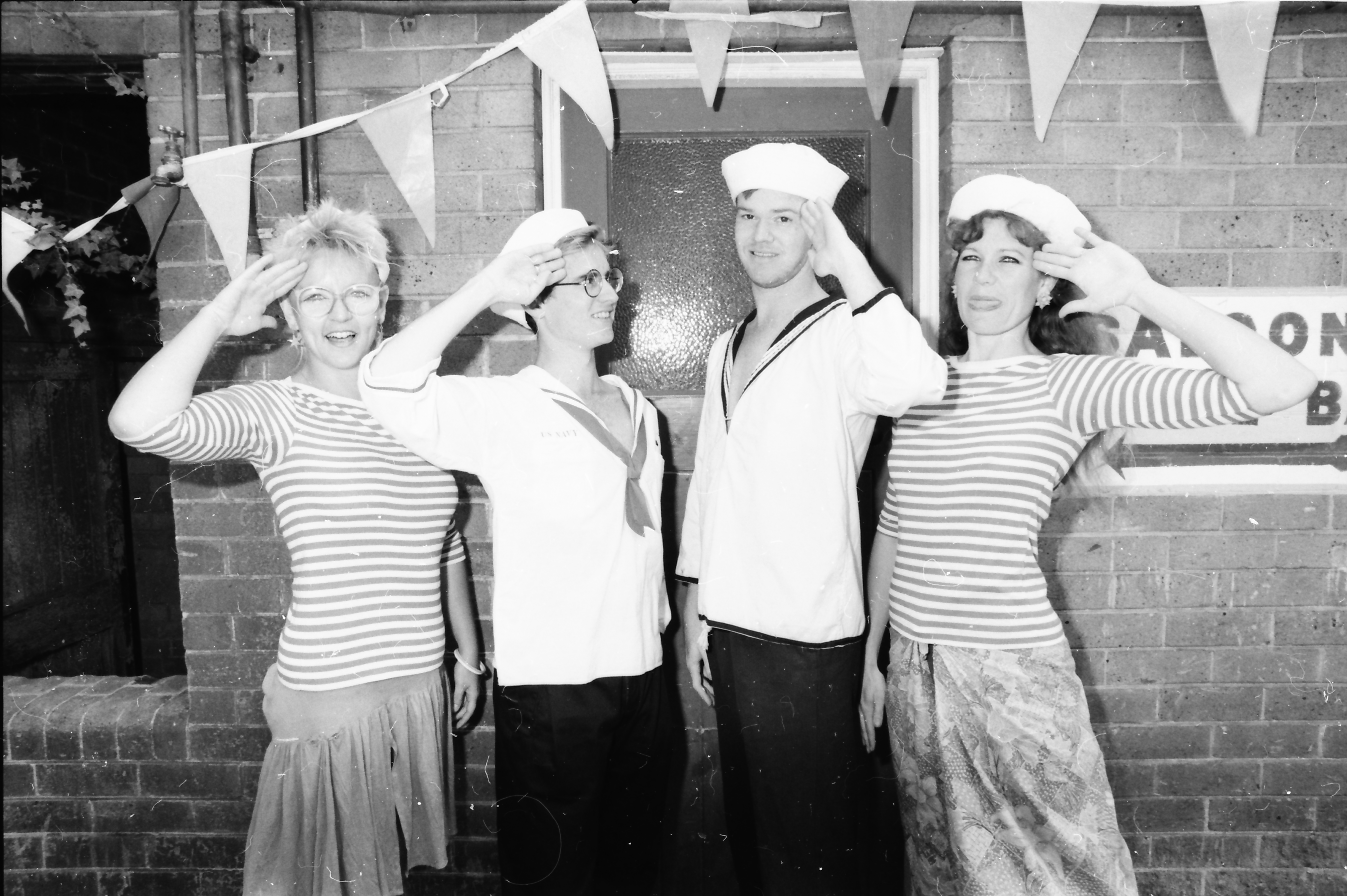
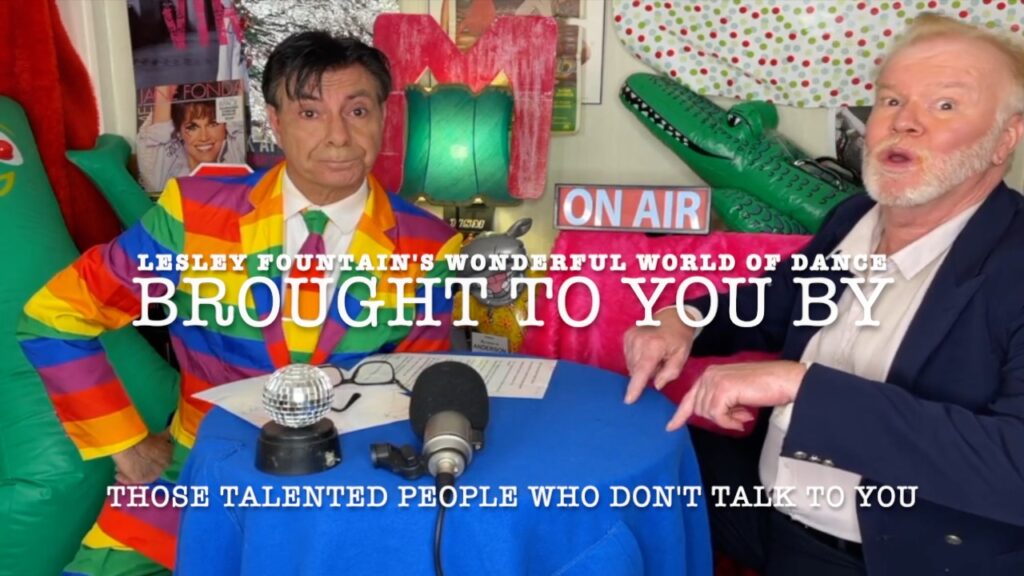
Watch last Saturday’s video livestream from Maynard International Studios.
To warm you up for the video livestream spectacular (Lesley Fountain’s Wonderful World of Dance) Maynardarama goes live from one corner of my room Batman pyjamas and all (with fly sewn up) for some 1997 retro sights and sounds.
WARNING: contains unexplained facial hair (a goatstache).
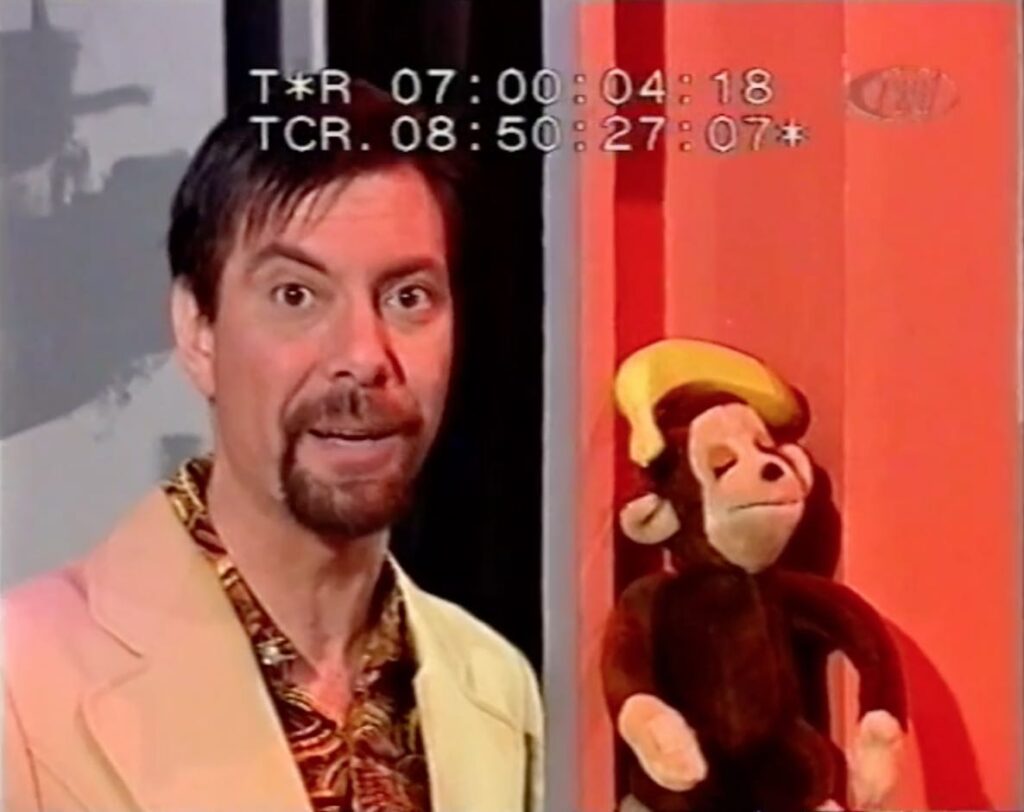
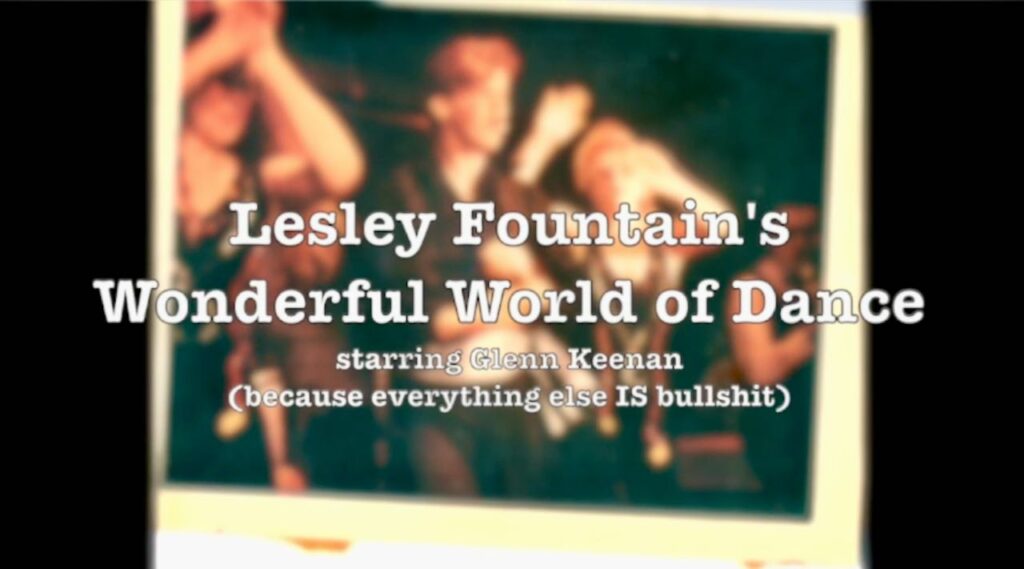
Maynard features the mighty Tom Jones in an hour with Tom goodness and Tom voice, and featuring the Tom moves that makes him the legend he is today.
This show has everything: dancing, prancing and panting in the time honoured fashion of everything Tom. Enjoy! (We did.)
You’ll see some of Tom’s biggest and most exciting songs as well as friends and collaborators over the years: The Cardigans, Barry Crocker, Talking Heads, even an interview by a slightly confused Molly Meldrum.
Maynard interviews Tom Jones in Australia in 1988 and 1995
